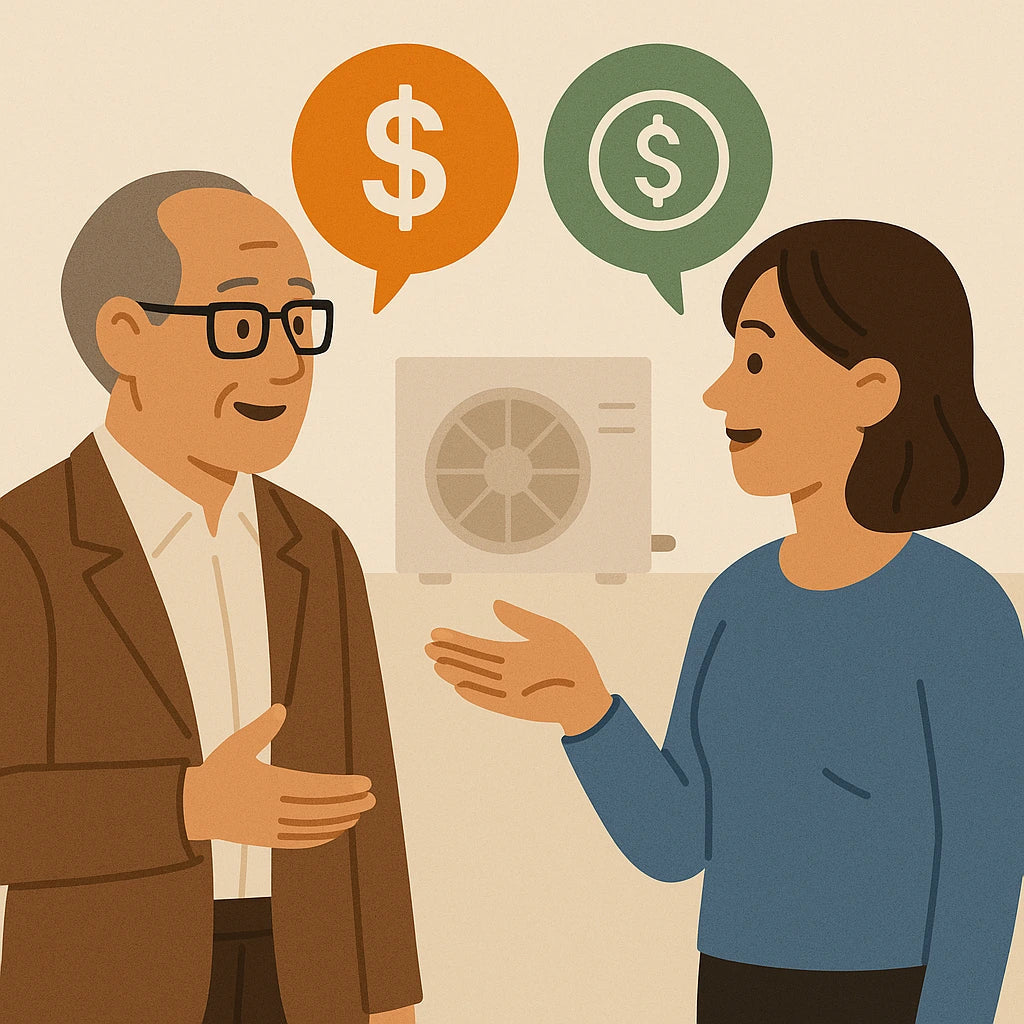If you’re a renter in 2025, you may be asking: “Can I qualify for HVAC rebates or tax credits if I don’t own my home?” It’s a fair question. With federal incentives, state programs, and utility rebates making headlines, homeowners often grab the spotlight. But renters represent a huge portion of U.S. households, and many want in on the savings.
The short answer: Renters usually can’t claim federal HVAC tax credits directly, but there are plenty of rebates, indirect benefits, and state-level programs that can still put money back in your pocket. In this guide, I’ll break down what renters can and can’t claim, and how to make the most of incentives in 2025.
📘 Want the full picture on incentives? Start with 2025 HVAC Tax Credits & Rebates Explained.
How HVAC Tax Credits Work for Homeowners vs. Renters
The Energy Efficient Home Improvement Credit, sometimes called the 25C tax credit, is designed to reward taxpayers who install qualifying energy-efficient upgrades. According to the IRS Energy Efficient Home Improvement Credit page, these credits apply to improvements like:
-
Heat pumps (up to $2,000 credit)
-
Central air conditioners and furnaces (up to $600 each)
-
Insulation, windows, doors, and home energy audits
Here’s the catch: the credit applies to the person who owns the home and pays for the upgrade. If you’re renting, you typically don’t have ownership rights in the property — which means you can’t claim federal HVAC credits for big-ticket equipment.
However, this doesn’t mean renters are out of the game entirely. Let’s break it down.
Can Renters Qualify for Federal Tax Credits?
Unfortunately, renters can’t claim federal HVAC tax credits for major upgrades like a new furnace or heat pump. Those credits are reserved for homeowners (or landlords) who purchase and install qualifying systems.
But there are still ways renters can benefit:
-
Indirect savings – If your landlord installs a high-efficiency HVAC system, you’ll enjoy lower utility bills and better comfort.
-
Shared incentives – In some cases, renters who pay for smaller improvements (like insulation or certain appliances) may be eligible, but always confirm with the IRS rules.
-
Negotiating with landlords – If your building needs upgrades, landlords might be more willing in 2025 thanks to federal and state incentives.
For details, ENERGY STAR provides a helpful overview of federal tax credits for energy efficiency.
Utility Rebates Renters Can Access
Where renters really shine is with utility rebates. Unlike federal tax credits, many rebates are open to anyone who purchases and installs qualifying equipment, even in a rental.
Common renter-friendly rebates include:
-
Smart thermostats – Many utilities offer $25–$100 rebates on ENERGY STAR certified thermostats.
-
Window AC units – Some utilities provide incentives for ENERGY STAR-rated models.
-
Demand response programs – Enroll your thermostat in an energy savings event, and you may receive bill credits or direct cash rebates.
To see what’s available in your area, check the official ENERGY STAR Rebate Finder.
State and Local Programs Supporting Renters
Beyond utilities, many state-run programs recognize that renters need support too.
Examples:
-
California: Rebates for efficient appliances, thermostats, and energy-saving kits.
-
New York: NYSERDA offers programs for renters to access efficiency upgrades.
-
Massachusetts: Mass Save provides free or discounted smart thermostats.
For the most up-to-date state-specific incentives, the DSIRE database is the most trusted source. It allows you to search by state and filter for renter-eligible programs.
Steps Renters Can Take to Benefit From Incentives
Even without direct access to federal HVAC tax credits, renters have plenty of ways to save in 2025. Here’s what I recommend:
1. Use Utility Rebates for Small Upgrades
Take advantage of rebates for smart thermostats, energy-efficient window ACs, or energy-saving kits. These are often inexpensive upfront and pay for themselves quickly.
2. Partner With Your Landlord
If your heating or cooling system is aging, talk to your landlord about tax credits. They may qualify for up to $2,000 back on a new heat pump, which also lowers your energy bills.
3. Sign Up for Energy-Saving Programs
Many utilities offer rebates for participating in demand response or time-of-use programs, which adjust your usage during peak times. These incentives are renter-friendly because they don’t require property ownership.
4. Get a Home Energy Audit
Some utilities cover free or discounted energy audits, which may include renters. These audits identify easy wins for efficiency and connect you to available rebates.
5. Keep Records for Rebate Claims
Unlike tax credits, rebates usually require receipts and proof of purchase. Submit forms promptly — most programs have 30–90 day windows.
Common Misconceptions About Renters and HVAC Incentives
Let’s clear up a few myths I hear from renters:
-
Myth 1: Renters can claim federal credits for HVAC upgrades.
Reality: Only landlords and homeowners qualify for these credits. -
Myth 2: All rebates apply to any thermostat or AC.
Reality: Rebates usually require ENERGY STAR certification. -
Myth 3: Landlords never share incentive savings.
Reality: Many landlords upgrade HVAC systems because of available credits, which benefits tenants with better comfort and lower bills.
The Bottom Line for Renters in 2025
If you’re renting, federal HVAC tax credits aren’t directly available to you — they’re designed for property owners. But that doesn’t mean you’re left out. Between utility rebates, state programs, and indirect savings when landlords upgrade, renters can still save significantly on heating and cooling costs.
The key is knowing which programs you’re eligible for and being proactive — whether that means applying for rebates on smaller upgrades or encouraging your landlord to take advantage of bigger credits.
📘 Next up: What HVAC Equipment Doesn’t Qualify for Tax Credits in 2025?
Alex Lane
Your Home Comfort Advocate







